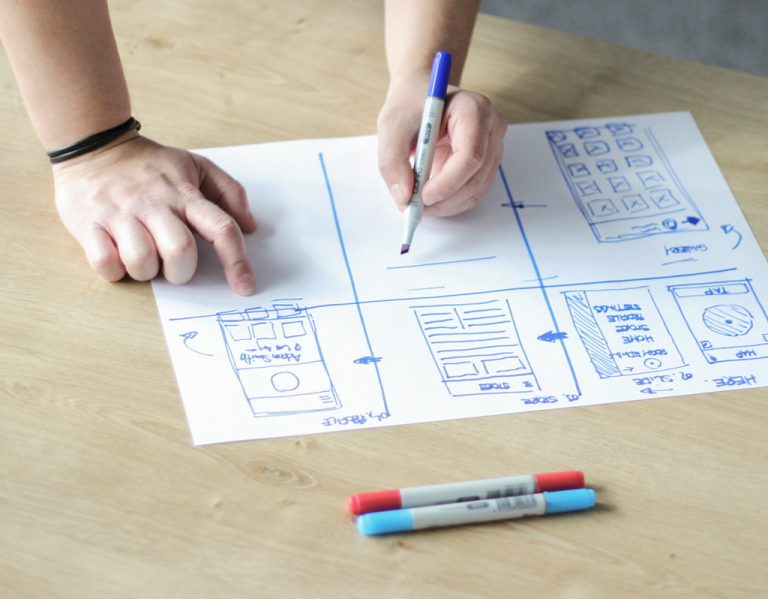Introduction
In today’s tech-savvy world, having a groundbreaking app idea is just the beginning. Transforming that idea into a functional application requires careful planning, development, and testing. One crucial step in this process is building a prototype. A prototype serves as a preliminary version of your app, helping you visualize its functionality and design before investing in full-scale development. In this blog, we’ll explore the average cost and time it takes to create a prototype for your app.
Understanding the App Prototype
Before diving into the cost and time estimates, let’s clarify what an app prototype is and why it’s essential:
- Definition: An app prototype is a simplified, interactive model of your application that demonstrates its core features and functionality. It typically lacks the final polish and complex features of a fully developed app but serves as a blueprint for the final product.
- Importance: Building a prototype before full-scale development has several advantages. It helps you test your app’s concept, identify potential flaws, gather valuable user feedback, and secure funding from investors or stakeholders.
Now that we have a clear understanding of what a prototype is and why it’s crucial, let’s explore the cost and time factors associated with building one.
The Purpose of a Prototype
Before delving into the costs and timelines, it’s essential to understand the purpose of a prototype. A prototype serves several critical functions:
- Concept Validation: It helps validate your app idea before investing substantial resources in development.
- User Testing: You can test the user interface (UI) and user experience (UX) to ensure they meet your users’ expectations.
- Feedback Gathering: It allows you to gather feedback from potential users, stakeholders, and investors to refine your concept.
- Visualization: A prototype provides a visual representation of your app’s design, functionality, and flow.
- Risk Mitigation: Identifies potential challenges and technical issues early in the development process, reducing risks and costly revisions later on.
Now that we understand why a prototype is essential let’s explore the average cost and time required to build one.
Factors Influencing the Cost and Time of App Prototyping
Several factors can significantly impact the cost and time required to create a prototype for your app:
- Complexity: The complexity of your app’s features and functionality is a significant determinant. A more complex app with advanced features will require more time and resources to prototype.
- Platform: Developing a prototype for a single platform (iOS or Android) is generally quicker and less costly than creating one for both platforms simultaneously.
- Design: The level of detail and polish in the prototype’s design will affect costs. A high-fidelity prototype with intricate design elements will take longer and cost more to develop.
- Team Expertise: The skills and experience of your development team play a crucial role. A seasoned team may work more efficiently and produce higher-quality prototypes.
- User Testing: Incorporating user testing and feedback into the prototyping process can extend the timeline but yield valuable insights for improving your app.
Average Cost of App Prototyping
The cost of app prototyping can vary widely based on the factors mentioned above and the region or country where you hire your development team. On average, you can expect to pay anywhere from $5,000 to $20,000 for a basic prototype. However, this cost can increase significantly for more complex apps or if you opt for a high-fidelity prototype with intricate design elements.
It’s essential to keep in mind that investing in a quality prototype is a wise decision, as it can save you time and money during the later stages of development by aiding in the early detection and resolution of problems.
Average Time to Build an App Prototype
The time required to build an app prototype can also vary depending on complexity, design, and the team’s efficiency. On average, it can take anywhere from four to twelve weeks to develop a basic prototype. More complex prototypes or those with intricate designs may take longer, possibly extending to several months.
Remember that rushing the prototyping phase can lead to critical oversights and issues in the final app. It’s essential to allocate sufficient time to ensure that your prototype accurately reflects your app’s vision.
Conclusion
Building a prototype for your app is a crucial step in the development process. It provides a tangible representation of your idea, helping you refine and improve it before moving on to full-scale development. While the cost and time associated with app prototyping can vary widely, careful consideration of your app’s complexity, design, and goals will help you make informed decisions.
Ultimately, the investment in a well-executed prototype is a wise one, as it can save you time, money, and headaches down the road by ensuring that your app is on the right track from the beginning. Remember, success in app development often begins with a strong, well-crafted prototype.


